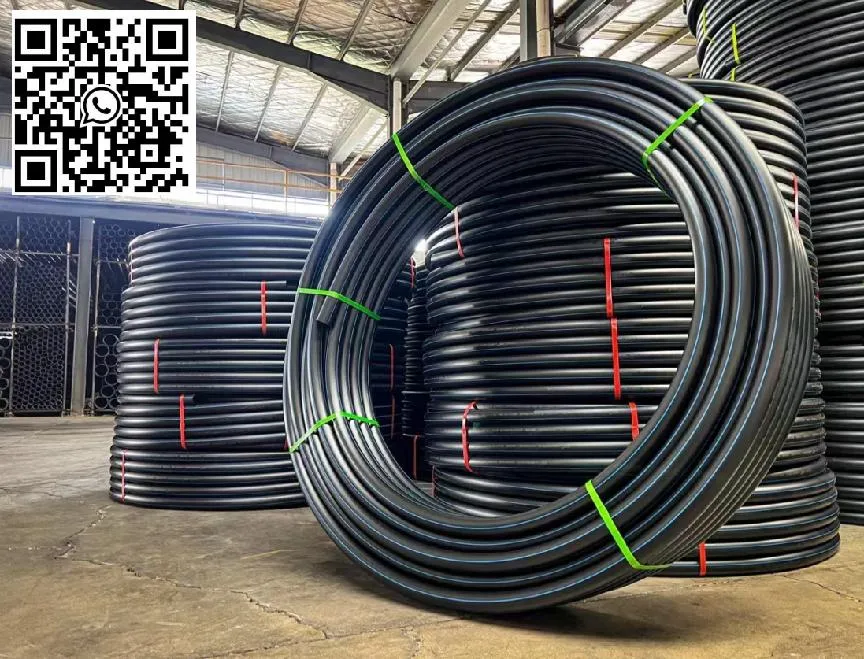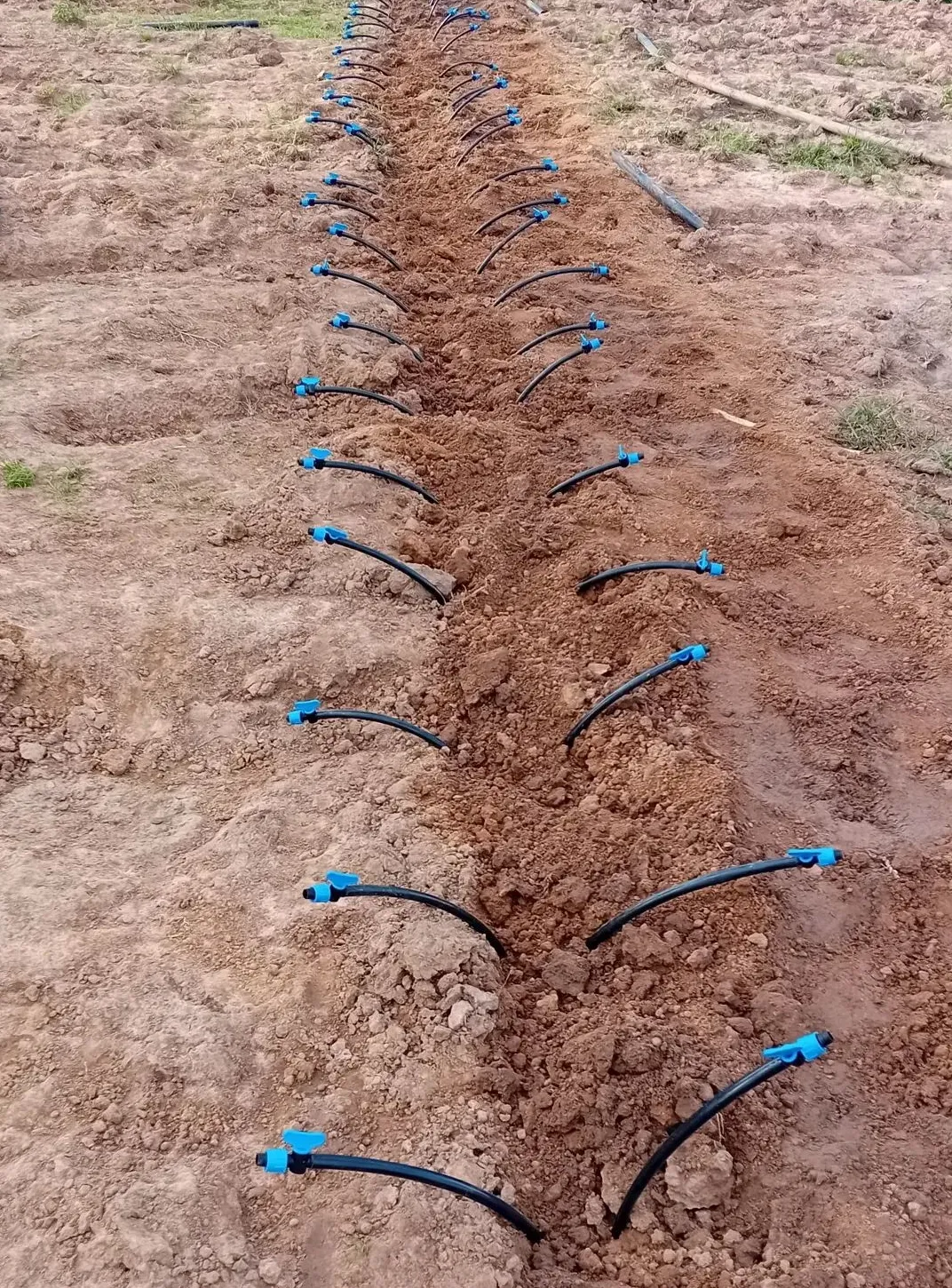Nov . 06, 2024 10:00 Back to list
The Environmental Impact of HDPE Pipes: A Look at Recycling and Sustainability
High-Density Polyethylene (HDPE) pipes have gained prominence in modern infrastructure, not only for their durability and versatility but also for their environmental benefits. As global attention increasingly focuses on sustainability, HDPE pipes stand out for their low environmental impact, recyclability, and role in promoting sustainable development. This article explores the environmental impact of HDPE pipes, highlighting their recyclability and contribution to sustainability in various applications.

The Production Process: Energy Efficiency and Resource Use of HDPE Pipes
The environmental impact of any material begins with its production process. water supply HDPE pipes for drinking water are manufactured using less energy than traditional materials such as steel or concrete. The production of HDPE requires fewer natural resources, resulting in a lower carbon footprint. This energy efficiency is a key factor in the growing preference for HDPE pipes in infrastructure projects where sustainability is a priority.
Furthermore, HDPE pipes are made from polyethylene, a polymer derived from ethylene, which can be sourced from both renewable and non-renewable resources. Advances in technology have made it possible to produce ethylene from bio-based feedstocks, reducing the reliance on fossil fuels. This shift towards bio-based polyethylene further enhances the sustainability profile of HDPE pipes, making them an even more attractive option for environmentally conscious projects.
Recyclability: Closing the Loop
One of the most significant environmental benefits of HDPE irrigation pipe fittings for drinking water is their recyclability. HDPE is a thermoplastic material, meaning it can be melted down and reformed multiple times without losing its structural integrity. This property makes HDPE pipes highly recyclable, allowing them to be repurposed at the end of their service life.
The recycling process for HDPE pipes is straightforward. Used pipes can be collected, cleaned, and then shredded into small pieces. These pieces are then melted down and reformed into new pipes or other products. This closed-loop recycling system reduces the need for virgin materials, conserves natural resources, and minimizes waste.
In addition to being recyclable, HDPE pipes themselves can be made from recycled materials. This further reduces the environmental impact of their production and supports the circular economy, where materials are kept in use for as long as possible, maximizing their value and minimizing waste.
Reducing Environmental Contamination With HDPE Pipes
HDPE pipes also contribute to environmental sustainability by reducing the risk of contamination in water and sewage systems. Their resistance to chemicals, corrosion, and leaks ensures that the fluids they carry remain contained, preventing pollutants from entering the environment. This is particularly important in applications where HDPE pipes are used to transport potable water, chemicals, or hazardous waste.
The durability of HDPE pipes also means that they require less frequent replacement compared to pipes made from other materials. This reduces the environmental impact associated with the extraction, production, and transportation of replacement materials. By extending the lifespan of infrastructure, HDPE pipes help to conserve resources and reduce the overall environmental footprint of construction projects.
Lightweight Design and Transportation Efficiency of HDPE Pipes
The lightweight nature of HDPE pipes offers additional environmental advantages, particularly in terms of transportation. Because they are lighter than traditional materials like steel or concrete, HDPE pipes require less energy to transport, resulting in lower greenhouse gas emissions. This is especially beneficial in large-scale infrastructure projects that require the transportation of significant quantities of pipe over long distances.
Moreover, the flexibility of HDPE pipes allows for longer lengths to be transported in a single shipment, further enhancing transportation efficiency. This reduces the number of trips needed to deliver materials to a construction site, cutting down on fuel consumption and emissions.

Supporting Sustainable Water Management With HDPE Pipes
HDPE pipes play a critical role in sustainable water management practices. Their leak-resistant design minimizes water loss in distribution systems, which is crucial for conserving this vital resource. In regions where water scarcity is a concern, the use of HDPE pipes can make a significant difference in ensuring that water is delivered efficiently and with minimal waste.
Additionally, HDPE pipes are often used in applications such as stormwater management, wastewater treatment, and irrigation systems. Their ability to handle a wide range of fluids, including recycled and treated water, makes them an ideal choice for systems designed to optimize water use and reduce environmental impact.
Challenges and Opportunities in Recycling About HDPE Pipes
While HDPE pipes are highly recyclable, there are still challenges associated with their recycling process. Contamination with other materials, such as metals or other plastics, can complicate recycling efforts. Additionally, the infrastructure for collecting and processing recycled HDPE is not uniformly available in all regions, which can limit the extent to which HDPE pipes are recycled.
However, these challenges also present opportunities for innovation and improvement. Advances in sorting and recycling technologies are making it easier to process contaminated or mixed materials. Furthermore, the growing demand for sustainable materials is driving investment in recycling infrastructure, which is likely to increase the availability of recycled HDPE in the future.
HORON INTERNATIONAL-Your Reliable Construction Plastic Pipes Manufacturer
Construction plastic pipes play a vital role in many of industrial fields. Only by purchasing from trustworthy manufacturers can the quality and precision be guaranteed. HORON INTERNATIONAL is a leading manufacturer of construction plastic pipes in China, With many years of industry experience and excellent reputation, is able to be come your reliable supplier. Contact us now to get more information.
-
Unveiling the Magic of PVC Irrigation Pipe
NewsJun.11,2025
-
Unlock Pipe Perfection with PPR Plumbing
NewsJun.11,2025
-
Unleashing the Hidden Potential of HDPE Tubing
NewsJun.11,2025
-
The New Frontier of PPR Plumbing Fittings Innovation
NewsJun.11,2025
-
Revolutionizing with PVC Tubing's Hidden Powers
NewsJun.11,2025
-
Advantages of HDPE Pipe in Potable Water Systems
NewsJun.11,2025

